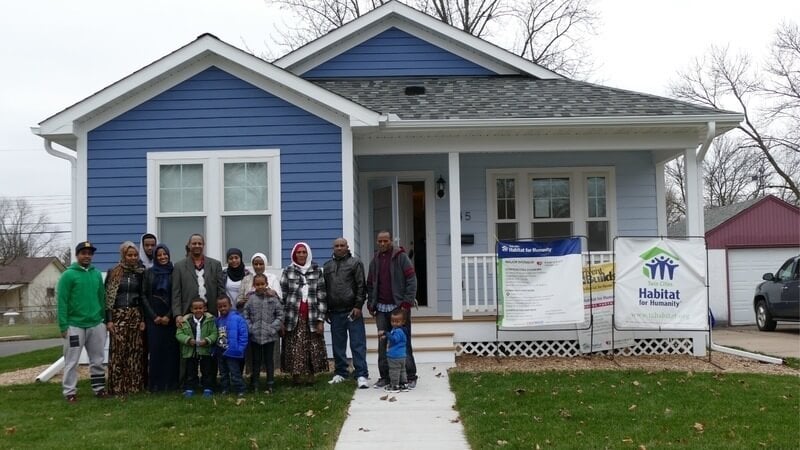Why Affordable Homeownership is Within Reach for More Individuals
Why Affordable Homeownership is Within Reach for More Individuals
Blog Article
Economical Homeownership Options for First-Time Homebuyers
As the real estate market proceeds to evolve, first-time property buyers deal with distinct challenges in securing budget-friendly homeownership options. Different resources, consisting of entitlement program programs, low-down-payment home mortgages, and targeted gives, have arised to minimize financial stress. These initiatives not just facilitate homeownership but likewise foster community security and financial growth. Browsing these alternatives can be complex, and understanding which paths are most advantageous calls for mindful consideration. What techniques can possible property owners employ to optimize their possibilities in this landscape?
Federal Government Support Programs
Government assistance programs play a vital duty in making homeownership possible for several individuals and households. These programs aim to relieve the monetary burden related to purchasing a home, especially for novice buyers. By supplying financial assistance, gives, and tax obligation incentives, federal government efforts help link the space in between increasing housing expenses and the buying power of prospective house owners.
Different programs are readily available at the government, state, and neighborhood levels. The Federal Housing Management (FHA) provides insurance policy on loans, allowing loan providers to provide more desirable terms, such as lower down settlements and lowered rate of interest prices. Furthermore, state and city governments typically have their own efforts, which might consist of down settlement assistance programs, buyer education training courses, and positive mortgage terms.
These programs are made to deal with the one-of-a-kind difficulties dealt with by reduced- to moderate-income families, including restricted cost savings and credit report. By cultivating an environment where homeownership is more accessible, entitlement program programs not just sustain private ambitions however likewise add to area stability and financial growth. Comprehending and using these sources can significantly enhance the prospects of successful homeownership.
Low-Down-Payment Home Loans
For many hopeful house owners, low-down-payment mortgages present a feasible path to homeownership, specifically in today's tough housing market. These mortgage options normally require deposits ranging from 3% to 5%, making it much easier for first-time purchasers to get in the market without the problem of conserving for a considerable deposit.
Different lending institutions offer low-down-payment programs, consisting of standard fundings backed by Fannie Mae and Freddie Mac, as well as government-backed choices like FHA financings. These mortgages are created to suit individuals with restricted financial savings while still supplying competitive rate of interest prices. Significantly, they allow customers to retain more money for various other vital expenses, such as moving costs, home examinations, and prospective remodellings.
However, potential property owners should be mindful of the trade-offs connected with low-down-payment mortgages. A smaller deposit may lead to greater month-to-month payments and the necessity of personal home mortgage insurance coverage (PMI), which protects lenders in instance of default. Therefore, it is vital for first-time purchasers to carry out extensive research study and seek advice from with home loan experts, ensuring they choose a low-down-payment choice that straightens with their lasting economic objectives. Affordable Homeownership.
First-Time Buyer Grants
Many new property buyers find that gives can considerably reduce the monetary concern of acquiring a home, matching low-down-payment mortgage alternatives. These grants, usually offered by state and local federal governments or non-profit companies, supply financial help that does not require payment, making them an eye-catching option for those going into the real estate market.
Eligibility for newbie buyer grants commonly depends on earnings, creditworthiness, and the purchase rate of the home. Many programs are created to aid low- to moderate-income households, guaranteeing that assistance reaches those who need it most. The application process often entails paperwork of financial standing, homebuyer education and learning training courses, and often even a dedication to stay in the home for a particular duration.
The amount useful varies extensively, with some grants providing a number of thousand bucks to assist cover article source closing expenses or down payments. Looking into available gives in your area is necessary, as programs regularly change and may have specific requirements. By leveraging these financial resources, novice property buyers can make homeownership a lot more obtainable, inevitably attaining their dream of owning a home while alleviating the initial monetary pressure.
Cutting-edge Neighborhood Initiatives
Ingenious community initiatives are playing an essential role in increasing economical homeownership options for homeowners. These campaigns commonly involve joint efforts in between city governments, charitable organizations, and economic sector stakeholders to produce lasting housing options customized to area requirements.
One significant technique is the establishment of neighborhood land depends on (CLTs), which permit locals to acquire homes while the land stays possessed by the trust fund. This design aids preserve price gradually and avoids speculative cost boosts. Furthermore, CLTs often provide instructional sources and support solutions to encourage newbie property buyers.
One more efficient initiative is the advancement of mixed-income housing tasks, which blend budget-friendly systems with market-rate homes. This strategy promotes inclusive communities and reduces the preconception commonly connected with low-income housing. Local federal governments are significantly sustaining zoning reforms to facilitate the construction of accessory dwelling devices (ADUs), which can offer additional rental income for house owners while increasing real estate schedule.

Tips for Budgeting and Saving

Next, develop a committed interest-bearing account especially for your future home purchase. Aim to conserve a portion of your revenue regularly, ideally 20% or more, to develop a significant deposit. Make use of automation devices, such as straight down payment or automatic transfers, to make saving easier and more consistent.
Furthermore, take into consideration adopting the 50/30/20 rule: allot 50% of your revenue to needs, 30% to desires, and 20% to Continued financial savings and financial obligation settlement - Affordable Homeownership. This technique promotes balanced financial health and wellness

Final Thought
In summary, budget friendly homeownership alternatives for novice property buyers incorporate numerous sources such as federal government assistance programs, low-down-payment home mortgages, and grants. By leveraging these monetary devices, individuals can navigate the intricacies of homeownership, eventually contributing to a more equitable real estate landscape.
As the housing market proceeds to advance, new buyers encounter special obstacles in safeguarding budget-friendly homeownership options. By cultivating an atmosphere where homeownership is extra easily accessible, federal government help programs not just sustain individual desires yet additionally contribute to neighborhood here stability and economic development. By leveraging these monetary resources, first-time property buyers can make homeownership a lot more available, eventually accomplishing their dream of owning a home while minimizing the initial monetary stress.
In recap, cost effective homeownership choices for novice buyers incorporate various resources such as government aid programs, low-down-payment home loans, and gives. By leveraging these economic devices, people can browse the intricacies of homeownership, ultimately adding to a much more equitable real estate landscape.
Report this page